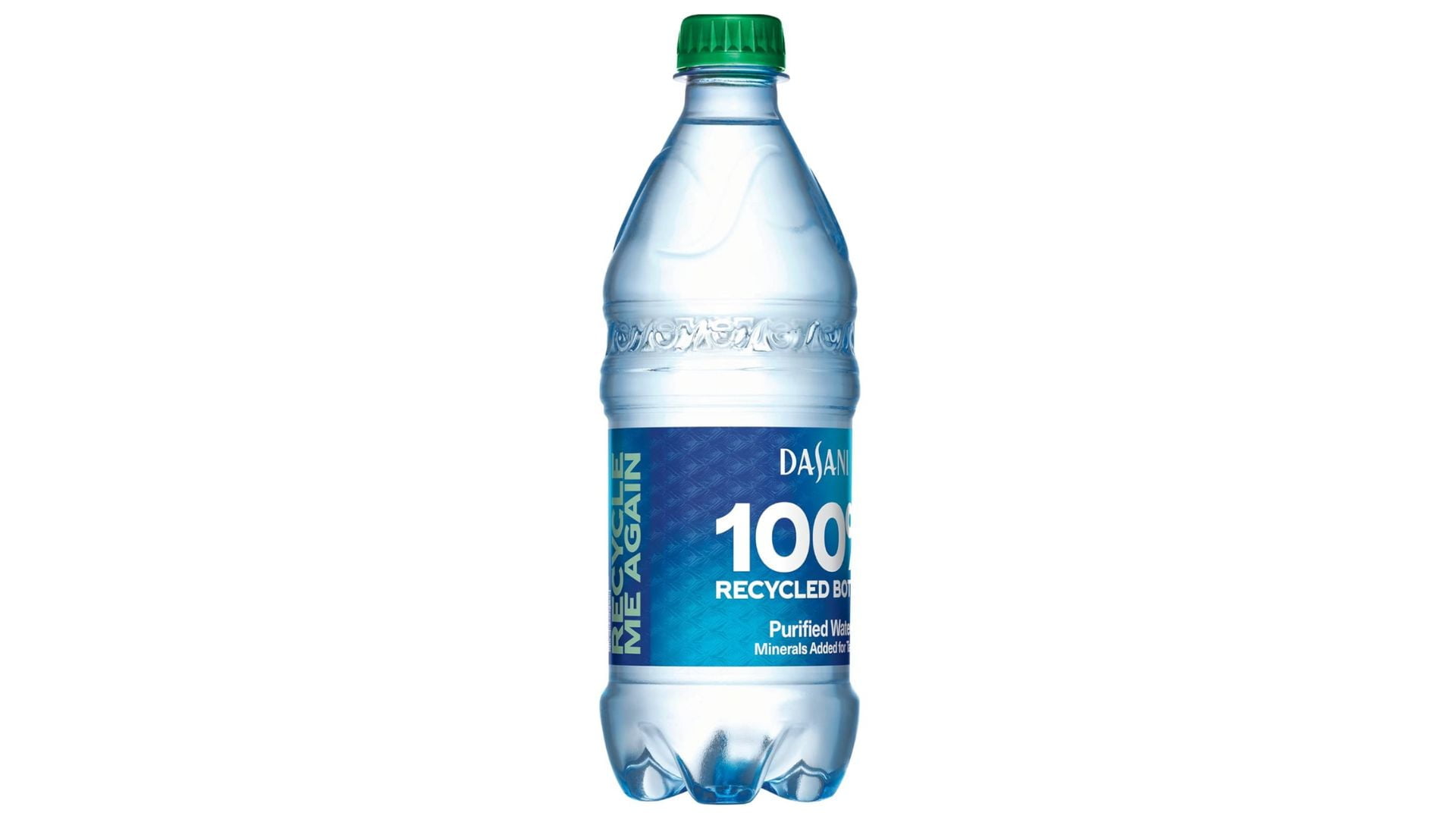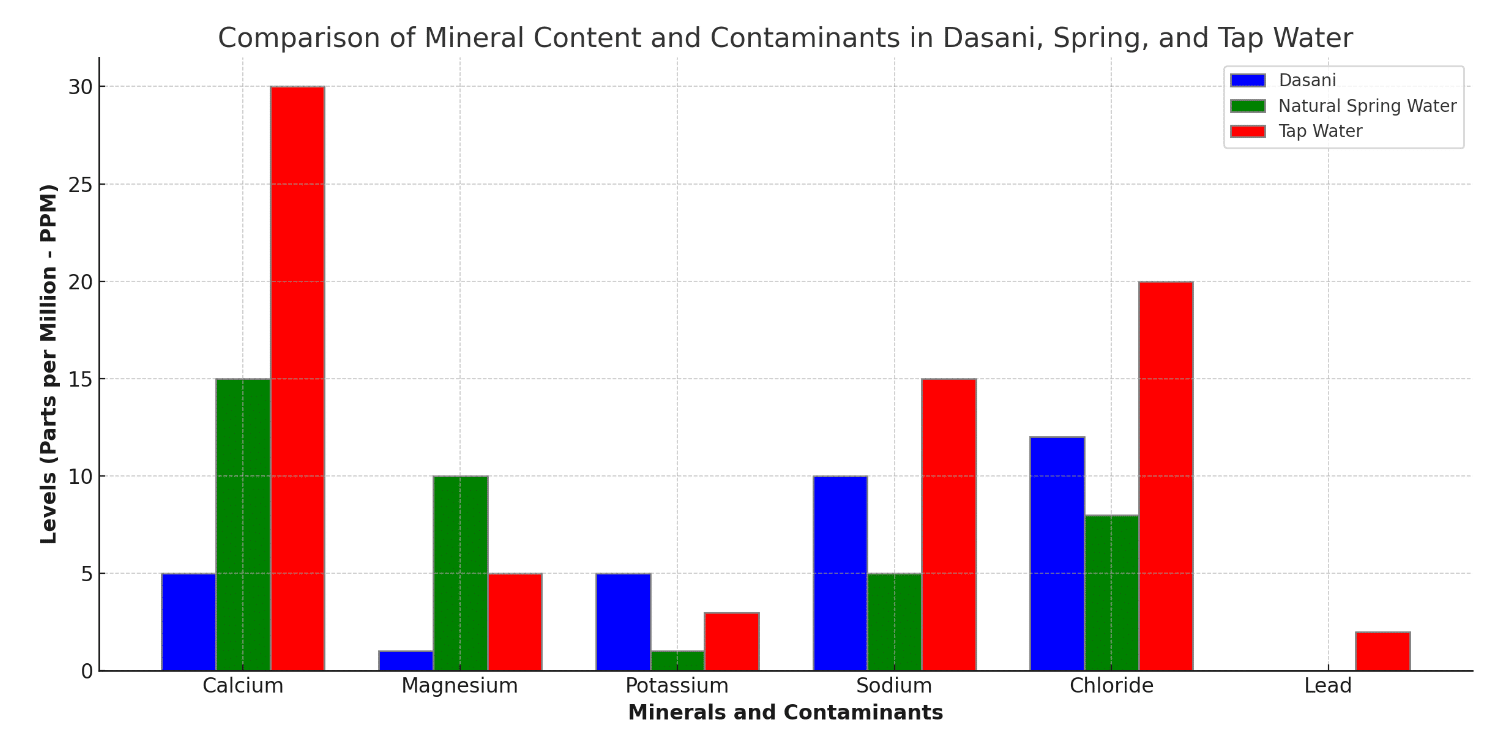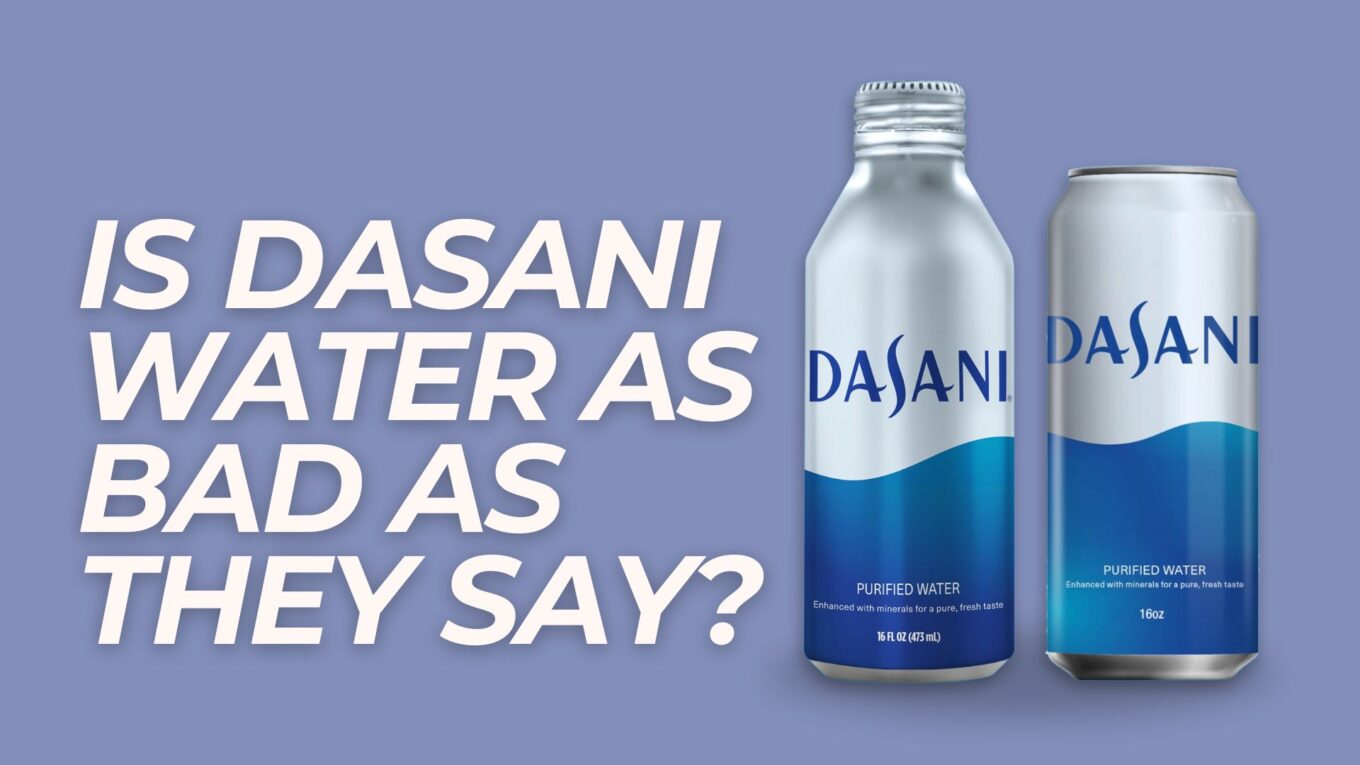In this article, we’ll dive deep into Dasani water’s controversies and uncover the truth about its safety and quality.
We’ll examine the purification process, ingredients, and potential health impacts based on scientific evidence and expert opinions.
From the use of reverse osmosis to the addition of minerals like potassium chloride, we’ll leave no stone unturned.
Let’s cut through the noise and find out if Dasani Water lives up to its reputation or the concerns are overblown.
Ownership and Brand History

Dasani, the well-known bottled water brand, is a product of The Coca-Cola Company, one of the world’s largest beverage corporations.
With a presence in over 200 countries, Coca-Cola’s scale and reach are unparalleled.
Launched in 1999, Dasani was introduced to tap into the growing bottled water market.
At the time, consumer trends shifted towards healthier beverage choices, and Coca-Cola recognized an opportunity to expand its product line beyond its signature soft drinks.
The company aimed to cater to health-conscious consumers by offering a purified water option while diversifying its portfolio.
Ingredients Analysis of Dasani Water and its Implications
While many assume that Dasani is simply purified tap water, a closer look at the label reveals a more complex composition.
In addition to purified water, Dasani contains a blend of minerals, including magnesium sulfate, potassium chloride, and salt (sodium chloride).
These added ingredients are intended to enhance the taste and provide consumers with a balance of electrolytes.
Look at this table below:
| Ingredient | Role in Dasani Water | Health Implications |
|---|---|---|
| Tap Water | Serves as the base for Dasani water. Purified through reverse osmosis to remove impurities and contaminants. | Generally safe for consumption, the purification process ensures the removal of harmful substances. |
| Magnesium Sulfate | Added for taste and to mimic the mineral content found in natural spring water. Also known as Epsom salt. | It is essential for many bodily functions, but the amount in Dasani is too minimal to contribute significantly to daily magnesium intake. |
| Potassium Chloride | Used to enhance the mineral content and taste profile, acting as a sodium chloride (table salt) substitute. | It is important for heart and muscle function. The levels in Dasani are designed to be safe and too low to impact daily potassium intake significantly. |
| Salt (Sodium Chloride) | A small amount is added for taste to improve the water’s overall flavor. | The amounts added to Dasani are unlikely to impact health but add significantly to daily sodium intake. |
Including these minerals in Dasani water has been a contention among consumers who expect a pure, unadulterated drinking experience.
Coca-Cola maintains that these additives are essential for enhancing the taste profile and providing a more well-rounded mineral composition similar to that found in natural spring water.
However, critics argue that the necessity of these additives is questionable, given that the public often seeks out bottled water as a source of pure hydration.
The debate surrounding the inclusion of these minerals raises questions about Dasani’s true purity and the transparency of its marketing as a premium water product.
From a health perspective, it is crucial to note that the levels of magnesium sulfate, potassium chloride, and salt in Dasani water are within safe consumption limits set by regulatory bodies.
While these additives may contribute to the overall taste and mineral content, they are unlikely to pose significant health risks when consumed in moderation as part of a balanced diet.
Nevertheless, the ongoing discussion surrounding the purity and marketing of bottled water, like Dasani, highlights the importance of informed consumer choices and understanding the contents of our products.
Filtration Process and Its Impact on Our Health

Dasani uses reverse osmosis (RO) filtration to purify water and remove contaminants and minerals.
Concerns exist about the health impacts of demineralized water on the body’s mineral balance and hydration.
RO water consumption’s potential health effects include kidney function, stomach health, and cardiovascular systems.
Water is forced through a semi-permeable membrane under high pressure. Contaminants, bacteria, dissolved solids, and minerals are trapped on one side.
Purified water passes through the membrane. Dasani adds a blend of minerals (magnesium sulfate, potassium chloride, and salt) back into the water for taste and electrolyte balance.
Let’s look at some of the health concerns:
1. Mineral Deficiencies
- Low-mineral water consumption may lead to mineral deficiencies over time (Journal of General Internal Medicine).
- Potential impact on bone health and other physiological functions.
2. Kidney Health
- Kidneys regulate the body’s electrolyte balance.
- Low-mineral water may strain the kidneys (International Journal of Nephrology and Renovascular Disease).
- Possible increased risk of kidney stones in some individuals.
3. Stomach Discomfort
- Lack of minerals in RO water may alter stomach acid levels.
- Potential digestive issues like bloating or nausea.
- Limited scientific evidence supports this claim.
4. Cardiovascular Health
- The imbalance of sodium and potassium in demineralized water may contribute to elevated blood pressure and heart disease risk.
- Effects likely depend on individual factors such as diet and lifestyle.
Occasional consumption of RO water is unlikely to pose significant health risks for most individuals.
Those with specific health conditions or mineral deficiencies should consult a healthcare professional.
Consumers should remain informed and make decisions based on individual circumstances and priorities.
Controversies and Consumer Reactions Regarding Dasani Water
| Aspect Explored | Findings | Impact on Public Opinion |
|---|---|---|
| Taste | Negative | Increased scrutiny |
| “Fizz” Sound | Unusual | Debate over quality |
| Ingredients | Questionable | Concerns about purity |
1. YouTuber Shane Dawson’s investigation
His investigation of Dasani water sparked significant attention and raised concerns about its quality. Dasani has faced various public perception issues, from taste complaints to ingredient scrutiny.
Shane Dawson’s Investigation and Its Impact Shane Dawson’s deep dive into Dasani water substantially impacted public opinion.
In his investigation, Dawson examined various aspects of bottled water, including its taste, the peculiar “fizz” sound upon opening, and the ingredients contributing to these characteristics.
His findings led to increased scrutiny and heated debates over Dasani’s water quality, with consumers questioning the brand’s transparency and the product’s overall value.
The widespread influence of Dawson’s investigation highlights the power of social media and consumer advocacy in shaping brand perceptions.
2. Backlash on Social Media Platforms
The Dasani controversy quickly spread across social media platforms, with consumers sharing memes, critical analyses, and personal opinions about the brand.
Social media catalyzed amplifying consumer voices, allowing individuals to express their dissatisfaction and concerns.
Common themes in consumer criticisms included complaints about Dasani’s taste, skepticism over the added ingredients, and reactions to the distinct “fizz” sound when opening the bottles.
The backlash on social media played a significant role in shaping the public perception of Dasani and putting pressure on the company to address consumer concerns.
3. Claims Related to Taste and “Fizz” Sound
One of the primary issues consumers raised was the unusual taste of Dasani water, which many described as unappealing or artificial.
Additionally, the “fizz” sound that occurs when opening a bottle of Dasani became a point of contention, with some consumers questioning whether it indicated the presence of carbonation or other additives.
These sensory attributes have led to doubts about the naturalness and purity of Dasani water, as they diverge from consumer expectations of how bottled water should taste and sound.
The added minerals and potential carbonation process may contribute to these sensory experiences, further fueling consumer skepticism.
4. Examination of Dasani’s Response and Consumer Advocacy
Faced with mounting public pressure, Dasani may have responded to the controversies by issuing clarifications, adjusting product formulation, or revising marketing strategies.
However, the specifics of their response would require further research. Consumer advocacy and increased awareness have driven transparency and change within the bottled water industry.
As consumers become more informed and vocal about their concerns, brands like Dasani are compelled to address issues related to water quality, ingredient transparency, and overall value.
The power of informed consumer choices cannot be understated. They hold brands accountable and shape the market’s direction.
What to Choose: Comparing Dasani with Spring and Tap Water

1. Dasani’s Health Profile
Dasani employs reverse osmosis filtration to purify its water, removing impurities and dissolved solids.
However, this process also strips the water of naturally occurring minerals. Dasani adds a blend of minerals back into the water to enhance taste and provide electrolytes, including magnesium sulfate, potassium chloride, and salt (sodium chloride).
Experts have discussed the health implications of consuming water with these added minerals.
Some argue that the minerals in Dasani water can contribute to the body’s electrolyte balance and provide essential nutrients.
However, others point out that the amounts of these minerals are relatively small and may not significantly impact overall health.
2. Comparison with Other Bottled Waters
Compared to other popular bottled water brands, Dasani’s health profile stands out due to its unique combination of purification and mineral addition. Some brands, such as Aquafina and Nestle Pure Life, use reverse osmosis filtration but do not add minerals back into the water.
These brands market their water as pure and free from additives.
Conversely, brands like Fiji Water and Evian source their water from natural springs and often tout the presence of naturally occurring minerals.
These brands claim that the mineral content of their water provides health benefits, such as promoting hydration and supporting overall well-being.
However, the scientific evidence supporting these claims is limited, and the actual health impact of the minerals in these waters may vary.
3. Tap Water Consideration
When considering the health implications of Dasani and other bottled waters, comparing them to tap water is essential.
Municipal water supplies in developed countries are subject to strict quality control measures and regular testing to ensure safety and purity.
Tap water often contains naturally occurring minerals, such as calcium and magnesium, which can contribute to a balanced diet.
However, tap water quality can vary depending on the location and the state of the local infrastructure.
In some areas, tap water may contain contaminants, such as lead or chlorine byproducts, which can have negative health effects if consumed in high amounts over an extended period.
In these cases, using a water filtration system or opting for bottled water like Dasani may be a safer alternative.
What Should You Choose?
Ultimately, the choice between Dasani, other bottled waters, and tap water depends on individual preferences, health concerns, and access to safe drinking water.
While the added minerals in Dasani water may provide some benefits, the overall health impact is likely minimal.
Consumers should prioritize staying hydrated and make informed decisions based on their needs and local water supply quality.
Conclusion
In conclusion, our deep dive into Dasani water has revealed a complex picture of a popular beverage brand.
While the reverse osmosis filtration process used by Dasani ensures purity, the addition of minerals and the use of plastic packaging have raised concerns among health-conscious consumers.
Comparisons with other bottled water brands and tap water offer valuable perspectives on each option’s benefits and drawbacks.
Ultimately, deciding to consume Dasani or any other bottled water is a personal choice that individual health needs, environmental considerations, and access to safe drinking water should inform.
As consumers, we have the power to demand transparency, hold brands accountable, and make choices that prioritize our well-being and the health of our planet.
So, what will you be drinking?
Frequently Asked Questions
Can Drinking Dasani Water Help Meet My Daily Mineral Requirements?
While Dasani water contains added minerals like magnesium sulfate and potassium chloride, the amounts are relatively small and unlikely to contribute significantly to daily mineral requirements.
Is There a Difference in The Potential Health Impacts of BPA-Free Dasani Bottles Compared to Other Plastic Bottles?
While Dasani bottles are BPA-free, some studies suggest that even BPA-free plastics may leach other potentially harmful chemicals into the water. More research is needed to understand the health implications fully.
Should People with Kidney Issues Be Cautious About Drinking Dasani Water Due to The Added Potassium Chloride?
Yes, people with kidney issues should be cautious about drinking Dasani water due to the added potassium chloride. They should consult their healthcare provider for personalized advice.




